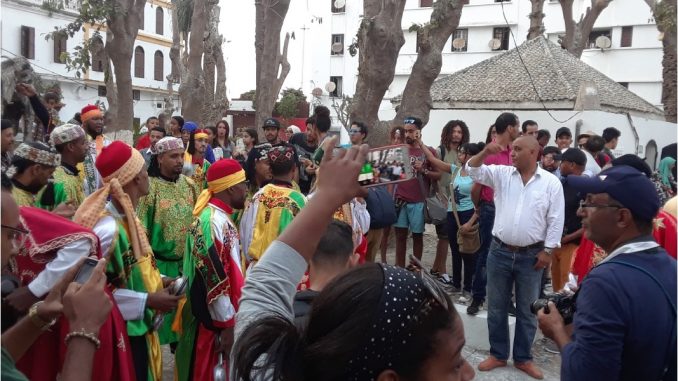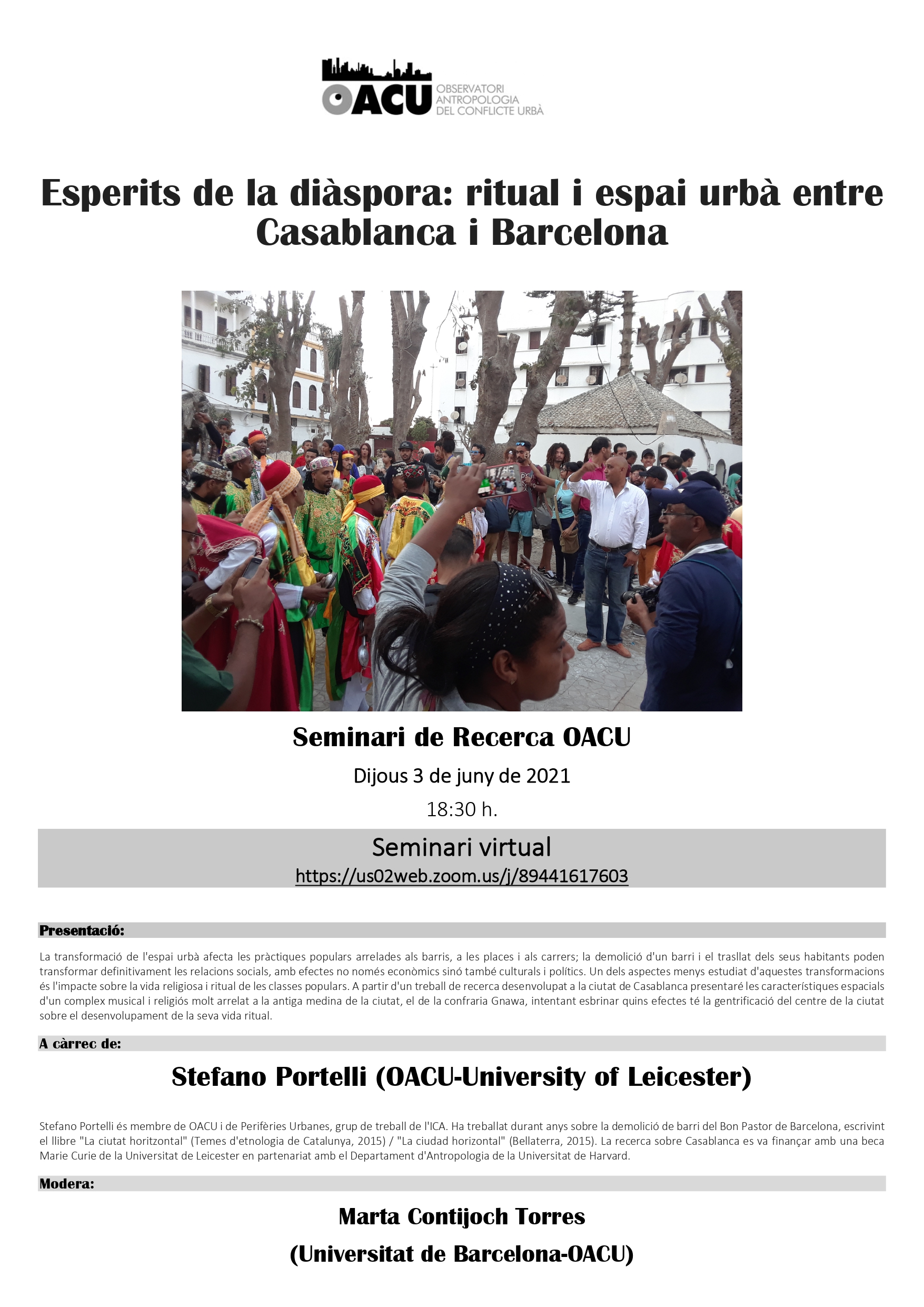
Source: Stefano Portelli
June 3rd – 18.30h
The Observatori d’Antropologia del Conflicte Urbà organises in the framework of the research seminars the following virtual session:
Link: https://us02web.zoom.us/j/89441617603
The transformation of urban space affects popular practices rooted in neighborhoods, squares and streets; the demolition of a neighbourhood and the transfer of its inhabitants can definitively transform social relations, with not only economic but also cultural and political effects. One of the least studied aspects of these transformations is the impact on the religious and ritual life of the popular classes. From a research work developed in the city of Casablanca I will present the spatial characteristics of a musical and religious complex deeply rooted in the ancient medina of the city, that of the brotherhood Gnawa, trying to find out what effects the gentrification of the center of the city has on the development of its ritual life.
By Stefano Portelli, member of OACU and Perifèries Urbanes, ICA’s working group. He has worked for years on the demolition of Barcelona’s Buen Pastor neighborhood, writing the book “La ciutat horizontal”(Temas de etnología de Cataluña, 2015) / “La ciudad horizontal” (Bellaterra, 2015). Research on Casablanca was funded by a Marie Curie Fellowship from the University of Leicester in partnership with the Department of Anthropology at Harvard University.
The sessions will be moderated by Marta Cotijoch Torres (Universitat de Barcelona-OACU).
